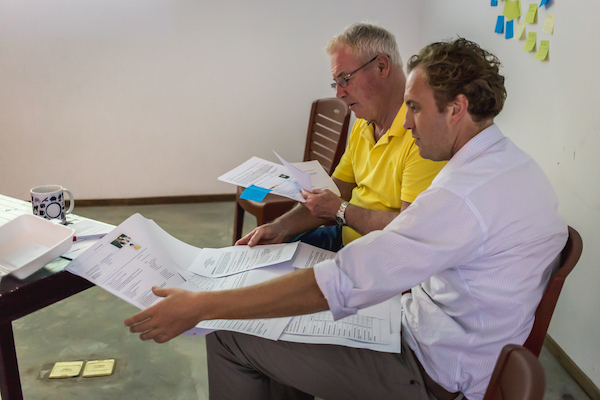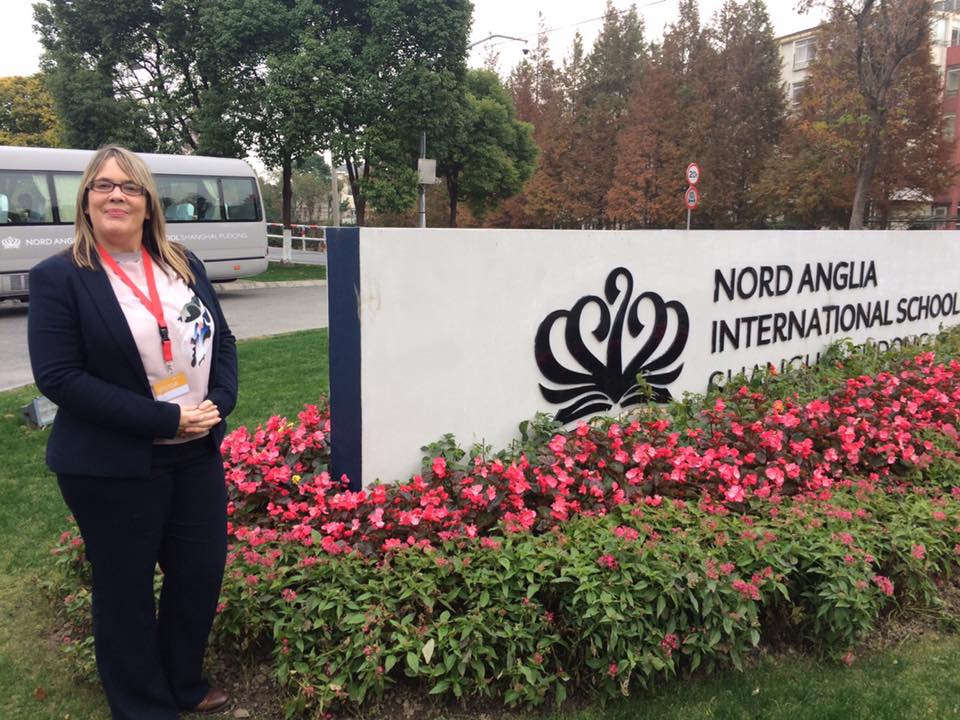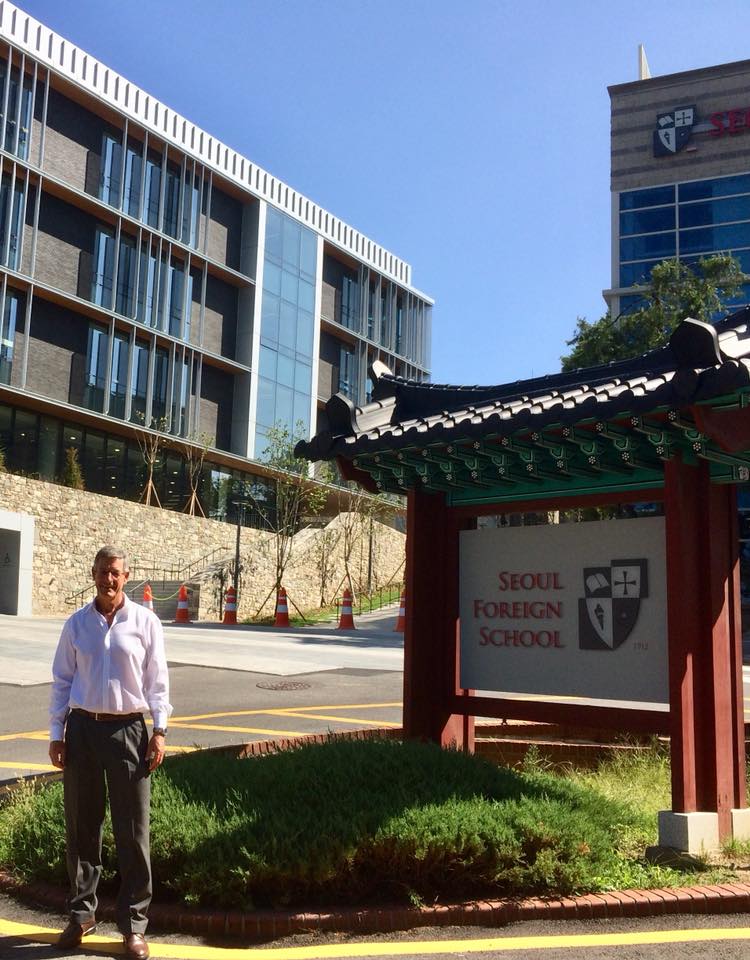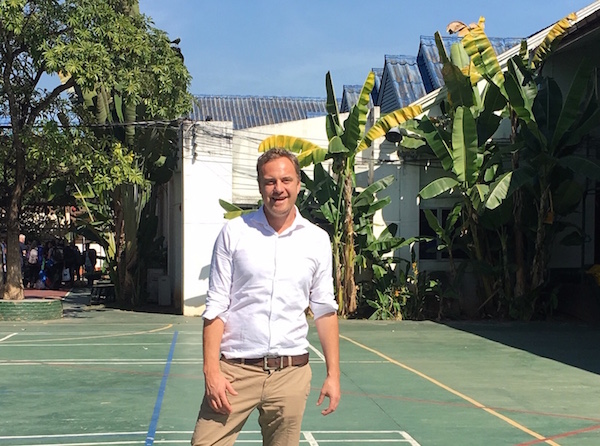As Teacher Horizons grows, more and more schools are signing up to use our services, so it’s more important than ever that we ensure they are good quality. I interviewed our CEO Alex Reynolds recently to find out more about how the team actually does this. What processes do Teacher Horizons and the team go through, and why is this important?
 What does ‘screening schools’ mean?
What does ‘screening schools’ mean?
It means that we check that the schools we work with are good and suitable places for our teachers to work. As we grow, more and more schools are looking to work with us, so we need to make sure they are high quality.
Why is it important to screen schools?
The international sector is growing quickly and more and more schools are being set up. Some of them are brilliant and others still have a way to go. We need to be selective so that we can recommend them to our teachers without reservation, and because we are a small team with a limit to the number of schools we can work with. Not all of our schools need to be the best of the best but we need to understand every school individually to know which teachers will fit in there. Screening effectively is about ‘fit’ as well as quality. Finally, as a young recruitment company, our reputation is vital so it is important for us to work with well respected schools where teachers are happy.
We are a young company and its been a journey so far – read our story through the words of one of our founders here.
 What steps do you take to screen schools?
What steps do you take to screen schools?
We have many levels that schools must pass through in order to use our service. We first do an admin screen to check they are a genuine international school. Then an online screening where we research them in detail online. We look for reviews of the school, we google the school and read all about it, and we check their website for areas such as the curriculum, facilities, photos of the school, the Heads welcome and the accreditations. The third level is a Skype screening, where we arrange a call with the school and speak to the Head or HR team directly. Here we can get an idea of their recruitment challenges, their turnover rate, and the types of teachers they are looking for. Finally, we then try to visit as many schools as possible and do a face to face screening.
Tell me more about this ‘face to face screening’. How do visits work?
 These are really useful. We always do a tour of the school to see the facilities and get an idea of what sort of a place it is to work. Through this we quickly pick up a sense of the school from the way we are greeted at reception, to the mood of teachers and students, even to the work on the walls! During the visit we will chat to teachers we have placed there ourselves or otherwise teachers we meet in the staffroom etc. We always try to meet the Head to put a face to a name, learn about their requirements, learn about their turnover, their challenges of recruitment and the reality (honesty points) about the school. We then share everything we learned with the TH team so that we can pass this honest, first hand information on to teachers when we speak to them. This ensures we are super-honest with teachers which helps them make informed decisions – and results in a happier outcome all round.
These are really useful. We always do a tour of the school to see the facilities and get an idea of what sort of a place it is to work. Through this we quickly pick up a sense of the school from the way we are greeted at reception, to the mood of teachers and students, even to the work on the walls! During the visit we will chat to teachers we have placed there ourselves or otherwise teachers we meet in the staffroom etc. We always try to meet the Head to put a face to a name, learn about their requirements, learn about their turnover, their challenges of recruitment and the reality (honesty points) about the school. We then share everything we learned with the TH team so that we can pass this honest, first hand information on to teachers when we speak to them. This ensures we are super-honest with teachers which helps them make informed decisions – and results in a happier outcome all round. Have a look at our blog about the schools we visited in November 2018 – click here!
What are the challenges of screening schools?
The international school sector is tough to screen and the clue is in the name! Schools are all around the world, and it is expensive and time consuming to go around and visit them all face to face. We are looking at ways of doing this and our team is expanding all the time so we can visit more schools in different locations. Sometimes honesty is a challenge – schools aren’t always up-front about their situation and we have to try to combat this. Our teachers play a vital part – we often ask for feedback on schools to give us a better idea from a employee’s perspective.
What are the warning signs that a school is not good?
There are lots. A high turnover rate, leadership changing a lot, an over-controlling owner who is not an educationalist, incorrect or out-of-date information on a school’s website. However, some of these can occur with good schools too. Sometimes you just get the impression that the recruitment contact you speak to is not being 100% upfront about something. Reviews can be interesting as well…..
We also screen our candidates of course – read about our safeguarding measures here!
 How do teachers’ comments about schools affect your screening process?
How do teachers’ comments about schools affect your screening process?
Reviews can be useful but it’s so important to note that they must be taken with a pinch of salt. There are various sites out there, and we know there are disgruntled teachers in all schools for various reasons, so negative reviews do not always reflect reality. At the same time though, it’s important to look for trends, such as lots of people making similar comments via different websites and forums. We definitely take this into account but with caution. Also, we often hear from teachers we have placed there ourselves and this information is vital to us. We do take comments on board and will often follow up with other teachers in the same school, or the school itself. Again, I must stress the challenge of taking one person’s perspective on board, as there can always be personality and approach clashes, even in the best schools. I’m sure our readers can think of examples in schools they’ve taught in.
What happens if a school does not pass the screening process?
It’s a very difficult situation! We are huge believers in transparency – its one of our core values. If we have decided not to work with a school we will explain that they are unable to use our Global service (we have limited resources for this service so can cater only for our top schools). We would still allow the school have a profile on our page as we don’t screen schools for this. To have a profile they just need to be an international school in some way, and in having a profile they can add jobs still, but we wont support or recommend them. We explain this clearly.
Our relationship with our schools is strong – have a read of this feedback from schools in 2018.
 Do you screen schools that you have been working with for years?
Do you screen schools that you have been working with for years?
Definitely. We keep in touch with our schools regularly and we might go and visit them if we haven’t before. We realise that leadership changes and schools are dynamic; good schools can start to struggle just as struggling schools can become good schools. We ask schools to complete an ‘application form’ each year to find out the changes that have happened. We also keep in touch with teachers we have paced there, for any important developments. If one of our current schools does fail a screening, we would always give them a chance to improve by providing them with feedback, just as we expect from them with our candidates. We are always open to working with schools again in future but as I mentioned before we have to be selective with which schools we work with closely.
Are there any future developments to look forward to in terms of screening schools?
There are lots of exciting developments on the way. First and foremost we are likely to do more visits in the coming years. We have a global team of International Advisers who live in different regions and are visiting schools on our behalf. We also want to get more feedback on schools through our user generated content – more about this to come.
The main things we have planned are secret at the moment – you will have to wait and see!



